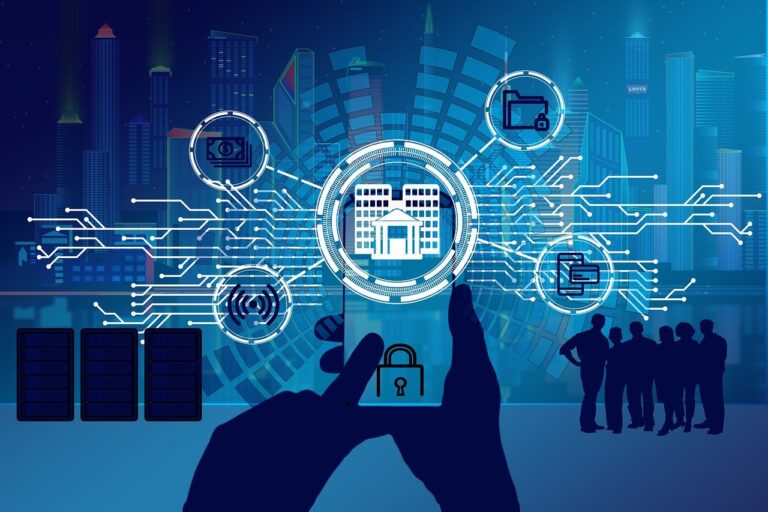According to a report by The Statistic Portal, over 46% of the world’s population used digital payments and online banks. This number is expected to grow steadily.
In the entire world, a greater amount of financial decentralization and decreased role of traditional banks have led to the rise in online banks and decentralized transaction experiences.
The rise in online banks has made traditional banking less and less relevant. Now it is no longer required to visit a bank in person or make cash payments. Payments have gone cashless, and one can check their account statements sitting at home.
Traditional banks undergo a massive change in their relevance. Their role as financial intermediaries is now challenged by decentralized systems reliant on blockchains.
Let us look at what they are and how they differ, and which one will win the challenge between traditional banks vs online banks.
Table of Contents
Traditional banks vs online banks
First, let us try to understand what traditional banks are. Traditional banks are those banks that have a physical presence. Customers can visit the bank and get their money-related work done in the bank. Traditional banks can be retail, commercial, investment, etc.
On the other hand, an online bank does not have a physical presence, but the major bank-related functions can be done online over the Internet. One can access the bank account using one’s laptop, mobile, or tablet.
Nowadays, we find that several banks have started to employ both physical and online banking systems. One can do online banking at the convenience of their home.
It is easier to access one’s bank account and send or receive money with the rise of online banking at the convenience and comfort of one’s home.
The rise of online banking: their powerful features
Online banking has today risen considerably. Let us look at the most important features of online banking:
- banking from anywhere: with the rise of online banking, it is possible to do banking from anywhere. Whether one is sitting at home, at their office, or on a vacation, one can perform their banking functions easily;
- save time: online banking greatly saves time by cutting down on the time it takes to reach the bank branch. You can simply log in on the banking application on your device without the need to stand in lines;
- faster transactions: it is easier to do transactions and make bill payments quickly using online banking. Cutting down time on traveling and physical work, online transactions have never been easier and faster;
- lesser fees: due to the lower operating costs of online banking, the fees for using online banking features may be much lower;
- transferring funds: using National Electronic Funds Transfer (NEFT) and Real Time Gross Settlement (RTGS), funds can be transferred within an hour using the Internet;
- paying bills: it is easier to never miss paying your bills. Several online banking features allow you to make automatic payments or remind you to make payments from the comfort of your home;
- access to add-on services: online banking features can access several add-on services. One can easily get a loan or invest in mutual funds. Several online banking features allow automatic payments for such frequent payments.
The decline of traditional banking: its drawbacks
Decentralized finance (DeFi) relies on blockchain technology to eliminate any middleman involved in financial transactions. The rise of DeFi has started to lead to the demise of traditional banking, which has relied on an intermediary which tends to make payments slower.
Several big millionaires are now investing in DeFi. But what exactly is wrong with traditional banking leading to its demise? Let us look at these:
- intermediary in traditional banking: traditionally, banks are seen as intermediaries between a saver and a borrower. The process involves a longer time duration and can also be troublesome and bureaucratic;
- low rates of interest: traditional banks offer a much lower rate of interest on deposits in comparison to online banking systems;
- lesser convenience: with the rise of online banking, it has become easier to do online transactions, and there is lesser reliance on physical transactions within banks;
- slow service: anyone who has ever gone to a government bank knows the slow and bureaucratic service. Standing in long lines, delays in execution and processing of funds, and frustrating experiences are common experiences;
- banking services bound by time: most traditional banking services are available only during the bank’s operating hours. Sometimes this can be an issue in times of emergencies.
Traditional banks vs online banks: what is the future
It is apparent now that banking is now undergoing massive changes with digitization and the rise of decentralization and banking benefits from technological innovations.
The rise of mobile payment technology has also surpassed the demand for online banks. Though digital-only banks are slow to come up, many traditional banks have given up on their traditional roles and given greater digitalization and online services.
Newer technologies such as the Internet of Things (IOT), Blockchain Technology, and Artificial Intelligence (AI) will also impact the way banking is done and make it more convenient and accessible to people.
Read also: Is Metaverse the future of banks?












